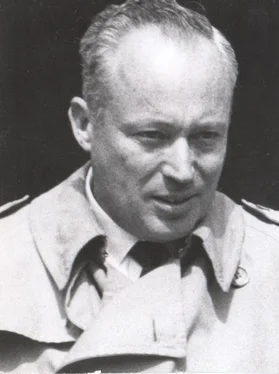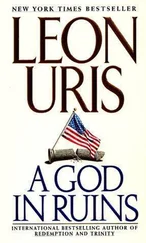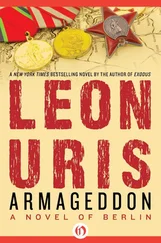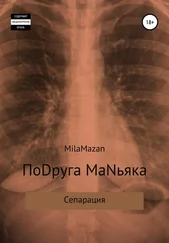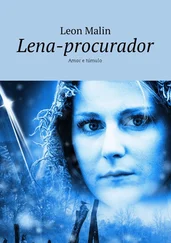
MILA 18
LEON URIS
This book is dedicated to
ANTEK-ITZHAK ZUCKERMAN
ZIVIAH LUBETKIN
and the others who participated in an immortal moment in behalf of human dignity and freedom, and to one in particular
DR. ISRAEL I. BLUMENFELD
Part One
TWILIGHT
Chapter One
Journal Entry—August 1939
THIS IS THE FIRST entry in my journal. I cannot help but feel that the war will begin in a few weeks. If the lessons of the past three years are any barometer, something awesome is apt to happen if Germany makes a successful invasion, what with three and a half million Jews in Poland. Perhaps the tensions of the moment are making me overdramatic. My journal may prove completely worthless and a waste of time. Yet, as a historian, I must satisfy the impulse to record what is happening around me.
ALEXANDER BRANDEL
Drops of late summer rain splattered against the high window which ran from the floor to the ceiling.
The big room was violently Polish, in memory of one of the landed gentry who had kept it as a nest for his mistress of the moment during his visits to Warsaw from his estate. All evidence of female occupants had vanished. It was solid and leathery and masculine. Its former grandeur was somewhat qualified by a practical consideration that the present occupant was a working journalist with the particular slovenliness that goes with bachelorhood.
Christopher de Monti was untidy but rather inoffensive about it. It was almost a pleasure for his housekeeper to clean up after him, for he had immaculate taste in records and books and tobacco and liquor and a wardrobe marked with the finest British labels.
In one corner, next to the window, stood a banged-up typewriter and a ream of paper and an overfull ash tray.
The single bedroom was formed by a deep alcove off the living room which could be isolated by drawing a pair of velvet drapes. A night stand beside the huge bed sported an ancient German table-model radio shaped like a church window. From the radio escaped the sad and foreboding notes of Chopin’s Nocturne in A Flat.
That was about all one heard on Radio Polskie these days; Chopin performed by Paderewski ... nocturnes.
It seemed as though night was again to fall on Poland.
Chris grumbled in a state of half sleep and half wakefulness and stretched his lean, wiry limbs to their full reaches and felt across the bed for Deborah. She was gone. His eyes opened and searched the dark corners of the alcove. Then he quieted as he heard her moving about in the other room.
His hand groped automatically on the night stand and found the pack of cigarettes, and in a moment he watched the smoke laze upward as the nocturne raced to a pulsating crescendo.
Chris rolled over on his side and looked at Deborah through an opening in the drapes. Her half-naked body was bathed in late afternoon shadows. Chris loved to watch her dress. She balanced a foot on the end of a chair and stretched her leg and rolled up her stockings and slipped into her blouse and skirt with effortless grace. Then she stood before the mirror, her fingers darting pins into long raven hair and twisting it nervously into a firm knot. He remembered that first time when he had taken the pins from her hair one by one and watched it fall like black silk. She took her trench coat from the coat tree and buttoned it, never acknowledging that she knew Chris’s eyes were on her back, and with determined abruptness walked for the door.
“Deborah.”
She stopped and pressed her forehead against the door.
“Deborah.”
She came into the alcove and sat on the edge of the bed. Chris snuffed out the cigarette, rolled next to her, and lay his head in her lap. Her black eyes filled with melancholy. Her fingers traced his cheek and mouth and neck and shoulders, and Chris looked up at her. How beautiful you are, he thought. She was biblical. Black and olive. A Deborah of the Bible. When she stood, Chris grabbed her wrist and she could feel his hand tremble.
“We can’t keep this up. Let me speak to him.”
“It would kill him, Chris.”
“How about me? It’s killing me.”
“Please.”
“I’m talking to him tonight.”
“Oh Lord, why does it always have to end like this?”
“It will until you’re my wife.”
“You’re not to see him, Chris. I mean that.”
He released his grip. “You’d better go,” he whispered. He turned away, his back toward her.
“Chris ... Chris ...”
Pride kept him silent.
“I’ll call you,” she said. “Will you see me?”
“You know I will.”
He threw on a robe and listened to the click-click-click of her footsteps on the marble hall outside. He pulled back the window drapes. The rain had slowed to a miserable drizzle. In a moment Deborah appeared on Jerusalem Boulevard below. She looked up to his window and waved her hand feebly, then ran across the street to where a line of droshkas waited. The horse clip-clopped away from the curb and turned out of sight.
Chris let the drapes fall closed, snuffing out most of the light. He wandered into the kitchen and poured himself cup of the steaming coffee Deborah had made, then slumped into a chair and hid his face in his hands, shaken by the impact of another parting.
On the radio, a newscaster speaking in nervous Polish recited the latest diplomatic setback in the growing mountain of them.
Chapter Two
Journal Entry
ON THE NEWS WE hear that Russia and Germany are about to announce a non-aggression treaty. It seems impossible that the two sworn enemies on the planet, pledged to destroy each other, have come to this. Hitler’s tactics seem logical. He obviously wants to neutralize Russia for the time being to avoid the possibility of a two-front war (that is, if England and France honor their obligations to Poland). I’m willing to wager that the wages being paid to Stalin is half of Poland and I think we are being divided up at some long polished table in Moscow this minute.
ALEXANDER BRANDEL
In embassies, state departments, chancelleries, foreign offices, consulates, ministries, war offices, code rooms, newsrooms, frantic men scurried to all-night conferences, played war games, barked into telephones of flooded switchboards, cursed, prayed, pleaded.
A trail of broken treaties lay strewn about like corpses after a Mongol invasion.
Men of good will were stunned at the warped logic behind which eighty million civilized people rallied and shrieked and strutted like hysterical robots. Hammered into a hypnotic trance by the well-timed tantrums that were the mad genius of Adolf Hitler, the men of good will sank deeper into muck and mire, unable to divest themselves of the all-consuming monster in their midst.
The geopoliticians had drawn and quartered the world into areas of labor and raw material and presented the master plan which stood to make Genghis Khan and every archvillain of every age pale by comparison.
The German masses gave the edict in a terrifying redundance, “Sieg Heil! Sieg Heil! Sieg Heil!”
“Lebensraum [Land to live]!”
“Sieg Heil!
And they poised ready to act out the role of Teuton war gods to the strains of Wagnerian Fire Music.
“We must save German citizens living under foreign tyranny! A German is always a German!”
“Sieg Heil!”
Austria and Czechoslovakia qualified. Flushed with bloodless victories, certain that America, France, and England would not fight, the Nazi cancer spread.
Читать дальше
